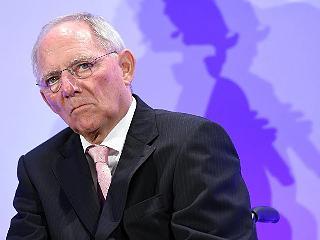Recently a weekly publication showed, on its cover, a portrait of Wolfgang Schauble with the headline: ‘This man scares us too’. Was it a Greek weekly? No, it was an Italian one, L’Espresso!

Guntram Wolff, director of the Brussels based think tank Bruegel, said ‘My hope is that Germany is aware that pushing Greece to the point where it has no perspective will be very damaging for Germany. Its image has already suffered very significantly last week’.
A clear proof that Germany’s leaders have undercut their country’s moral authority by taking, what sounded to many, like an aggressive, punishing, contemptuous tone toward Greece.
Commentators suggested that Merkel and Schauble had, without justification, humiliated Greece and its Prime Minister Alexis Tsipras. ‘Their handling of the situation has hurt their reputation in Europe and around the world’, the New York Times pronounced on its front-page. President Francois Hollande of France, showing more willingness to help Greece, distanced himself from Merkel and German demands, which many in Europe saw as selfish and even vindictive. Italy’s Prime Minister Matteo Renzi said of the German stance during the negotiations ‘enough is enough’.
Guntram Wolff, director of the Brussels based think tank Bruegel, said ‘My hope is that Germany is aware that pushing Greece to the point where it has no perspective will be very damaging for Germany. Its image has already suffered very significantly last week’.
Indeed, it is one thing to undergo changes when a government and a people have bought into them as necessary and hopeful. But it is a far different thing to have further social changes and austerity shoved down your throat in an exercise of political power and domination. It was close to asking Greece to surrender its sovereignty. Nixon, from Oxford Economics in London, said ‘like it or not, Greece has now been a vassal state of the euro area’.
In the opinion of Mario Draghi, president of the ECB, the measures ‘ensure that Greece will become a thriving economy’. But that is not a consensus opinion here. ‘This bailout is not about a growth plan for Greece. It is a plan to make sure the ECB and the IMF get paid and the euro area doesn’t break up’, Rahman, an analyst for London based Eurasia Group, stated. He looks to many much closer to reality than Draghi.
Another shameful blow to the so called European dream came last Monday when the EU, again, couldn’t find a solution for 40.000 Syrian and African refugees. Some member states flat out refused to agree with a European Commission proposal to offer shelter. Surely, saving the euro and the European institutions is one thing, offering necessary humanitarian aid another one.







